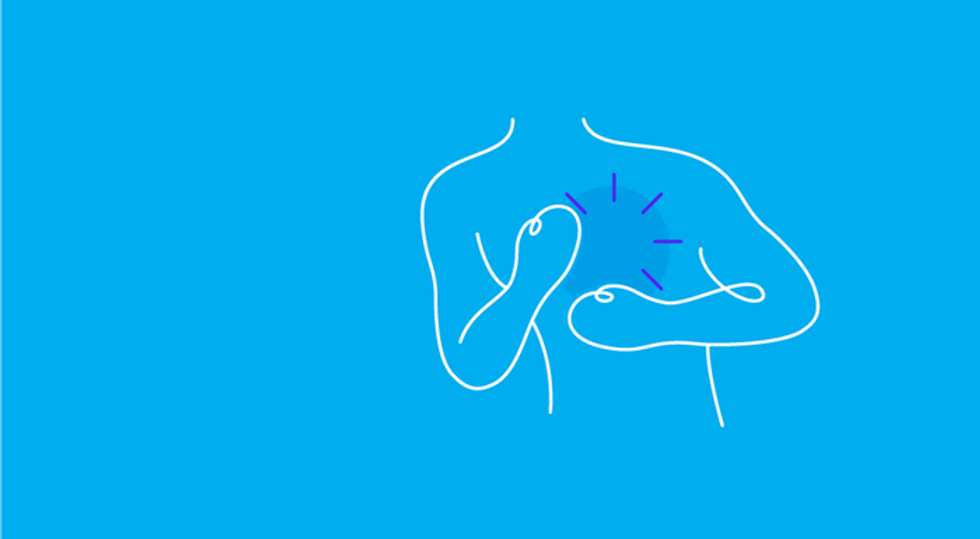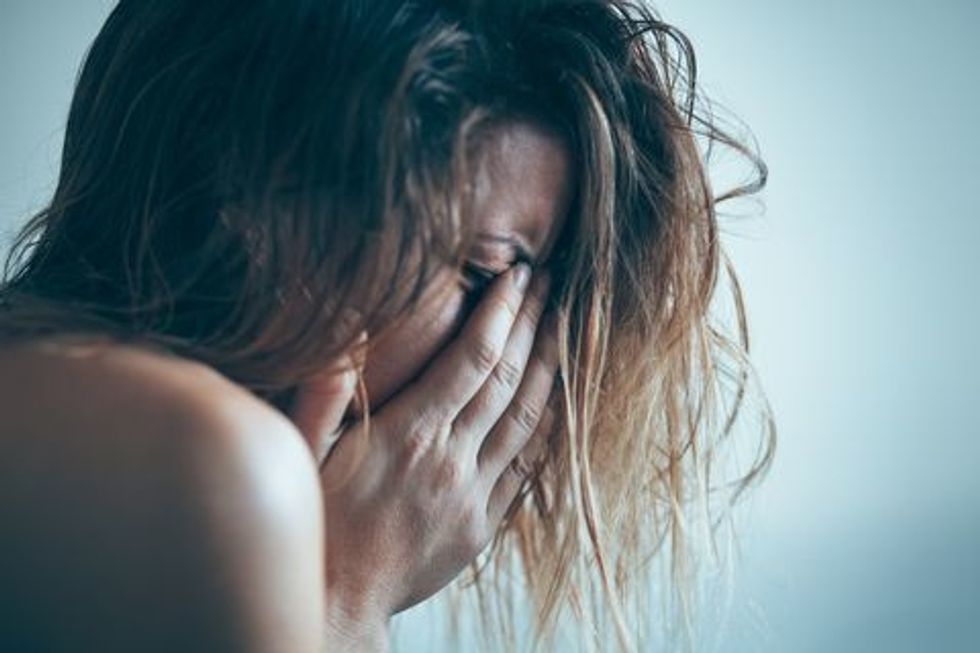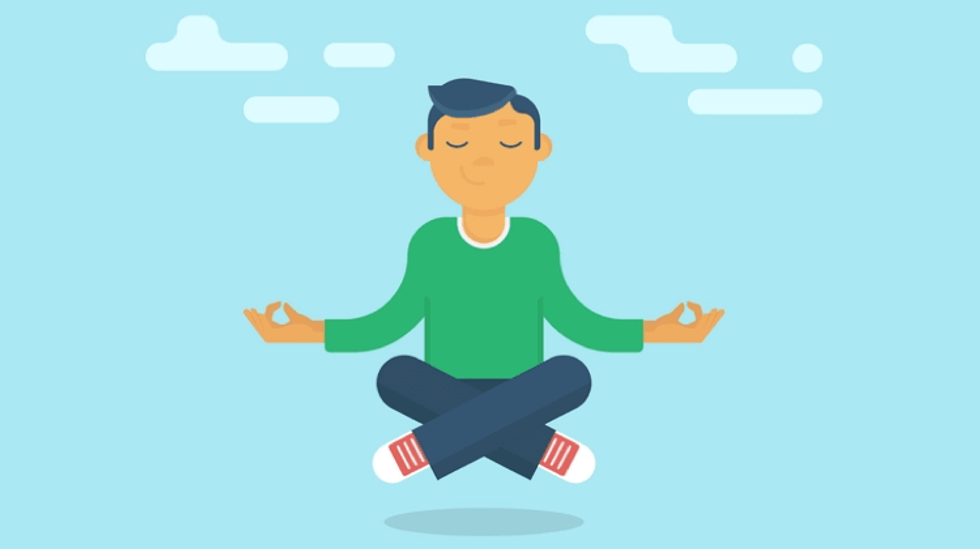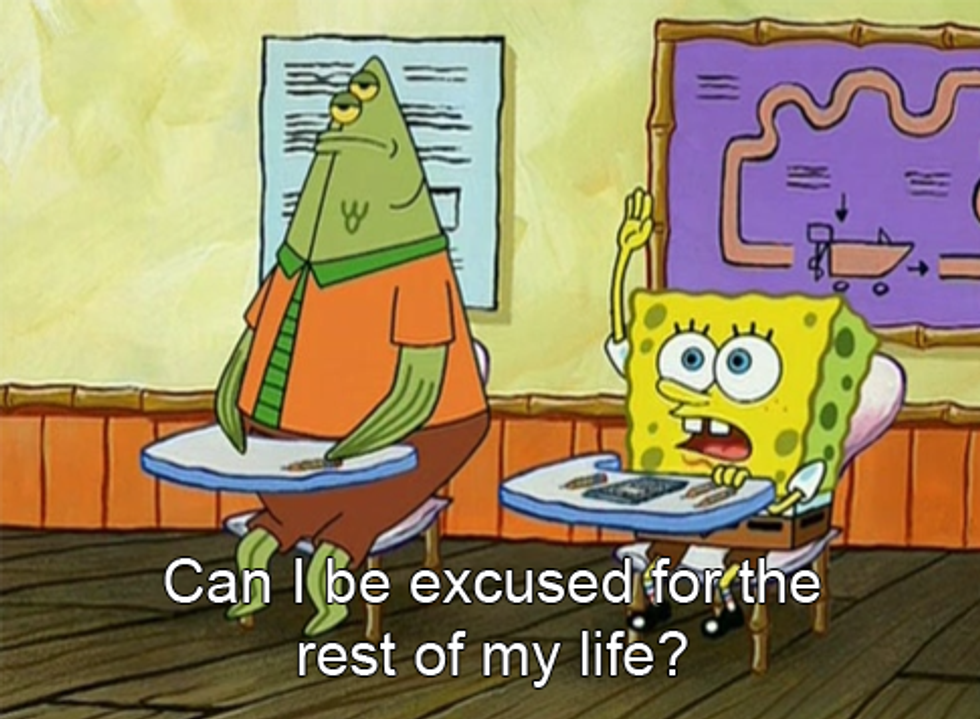As someone who has anxiety and has struggled with it for years, I've learned things about the process of treatment I didn't know, as well as experienced things nobody had mentioned to me. Here's what I can share.
1. The line between anxiety and stress starts to blur

Stress and anxiety have almost identical symptoms, with the main difference being how long it lasts, and that anxiety may or may not have a definite cause when it strikes (meanwhile stress usually does have at least one.) Because of this, often when the symptoms come on, it's hard to distinguish between them and know what's going on in your mind. You wonder if the feeling will go away when you turn in that paper or resolve a fight with that friend, but you don't know if it will. It essentially becomes a guessing game for what's going on and when will you feel better (and how.)
2. You get scared if symptoms disappear

If my symptoms/tendencies go away for a while, I start getting concerned. Anxiety becomes such a big part of daily life that being without it ironically feels like something is wrong. A lot of the fear comes from knowing it will probably come back, but not knowing when; fear that right now you feel great but tomorrow it'll all be back. And, if you're like me, a lot of your personality and quirks stem from anxiety, so having the anxiety fade feels like maybe you are fading, too.
3. Professionals struggle to treat anxiety

Some people run to their therapist thinking their job is to give a solid diagnosis and say some magic words to make you feel better. But anxiety is tricky, as any mental health problem is. No person can know exactly what is wrong and exactly how to treat it, so expecting that could drive anxiety even more when you don't get those results.
4. It can be physically painful

I'm not talking about feeling your heart racing or feeling faintish. Anxiety causes a list of mental and emotional responses, but for some people, anxiety puts you in real pain. For example, I get shooting pains in my arms and achy feelings in my chest if I'm anxious enough—and that's not uncommon.
5. Sometimes giving in is necessary

People like to say that when you're anxious or even having a panic attack, you should try to use therapy, medication, meditation, or other things to change how you feel as quickly as possible. But if you feel a lot of anxiety coming on in one moment, fighting it off can be a bad idea. In the moment it's terrible to feel this way, but in the long run, it's beneficial for your mental and physical health to sometimes let your emotions go wild. If you need to scream and cry, it releases excessive energy, so maybe find somewhere to do that and go for it. Don't let emotions build.
6. Caffeine's not so great anymore

I love tea. Black tea, herbal tea, iced tea, it's all super good—I used to drink tea like oxygen. But while already having anxious tendencies, having caffeine make my heart race felt like I was having anxiety attacks when I wasn't having them. Having my heart race with anxiety was enough, so when it started happening with caffeinated drinks, I had to stop drinking them.
7. Future goals get warped

Since being anxious can cause you to overthink, the future seems so close and yet so foggy. Thinking about the future in baby steps is a good way to avoid this.
8. Last but not least, you can improve

It takes time and effort to start living a calmer, healthier life with anxiety, but it's absolutely possible. Anxiety likely won't go away, so there's a common idea that if you live with anxiety, that's the end of the story; but it can be managed, and managing it is different for everybody. As long as you try your best, eventually you will see improvements.
Having anxiety is difficult, to put it simply. Luckily, the research and treatment surrounding it are improving day by day. If you suspect you are experiencing anxiety, even in smaller ways or inconsistently, I urge you to contact a professional or at the very least, tell somebody you trust.




















